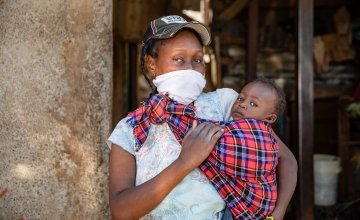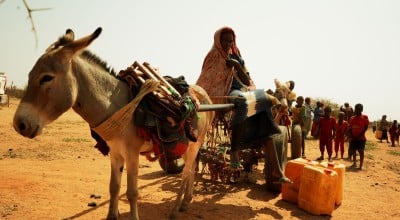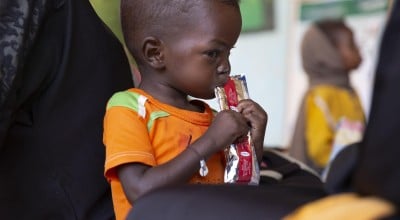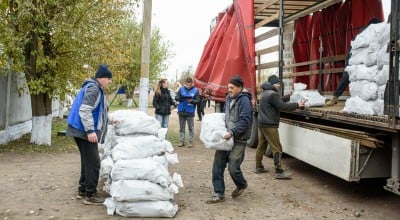
Read our 2024 annual report

Knowledge Hub
Millions of children face Christmas with nothing to eat after COVID job losses

Millions of children around the world face a Christmas with little or nothing to eat due to job losses during the COVID-19 pandemic- according to Irish humanitarian organisation Concern Worldwide.
The aid agency said lifesaving food aid is urgently needed in slum communities globally where an estimated 1 billion people live in cramped conditions that make social distancing near impossible.
Concern said an extra 10 million more children will have suffered from devastating hunger by the end of this year as a result of the global Covid-19 crisis.
“There is nothing more deafening than the silence of children suffering from hunger,” said Concern’s International Programmes Director, Anne O’Mahony.
“When a severely malnourished child is brought to us, they often lack the ability to even speak or cry. It is something nobody should have to experience and it is shocking to witness.
“This should not be happening in 2020 or any year, but the reality is that the number of people who are food insecure is projected to almost double from 135 million people at the start of this year to 265 million by the end of 2020.
“Despite this, there is hope and the Irish public have always been there to help by providing donations and support so that we can keep these children alive and see them smile and laugh again. Their laughter after recovery is the best sound you will ever hear.”
Concern said the global COVID-19 crisis has caused a new “hunger pandemic” due to millions of people living in slums having no other financial supports to pay for their rents, food, schooling and other needs after losing their jobs.
They include single parent Margret Wanjiru (33), who lives with her 10-month-old daughter, Charlyne, and a friend, in a small, windowless, one-room shack in Kibera in Nairobi, Kenya – Africa’s biggest slum. It is home to 250,000 people, many of whom live on less than €1 a day.
Before the pandemic, Margaret earned a living by washing clothes, which earned her enough to cover her living needs. But she has since had to beg for money to buy food and is now getting help from Concern.
“I have gone two days without food so that my child can eat,” she said.
“I wait for somebody to call me to work to do the washing, but nobody has called because of the pandemic.
“The situation here is very tough. I would like to leave here if I got the opportunity, but I can’t.”
Concern was formed in Dublin in 1968 as part of a major humanitarian response to the Biafran famine in Nigeria. Last year, its 3,500 aid workers helped 28.6 million people in 24 of the world’s poorest countries, which include Somalia, Haiti and Syria.
Anyone who would like to support Concern’s appeal or to learn more about its work can visit www.concern.net.
ENDS
For media queries and interview requests, please contact Kevin Jenkinson on 0863582886 or at kevin.jenkinson@concern.net.





